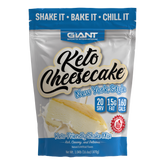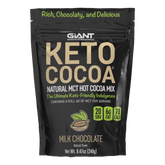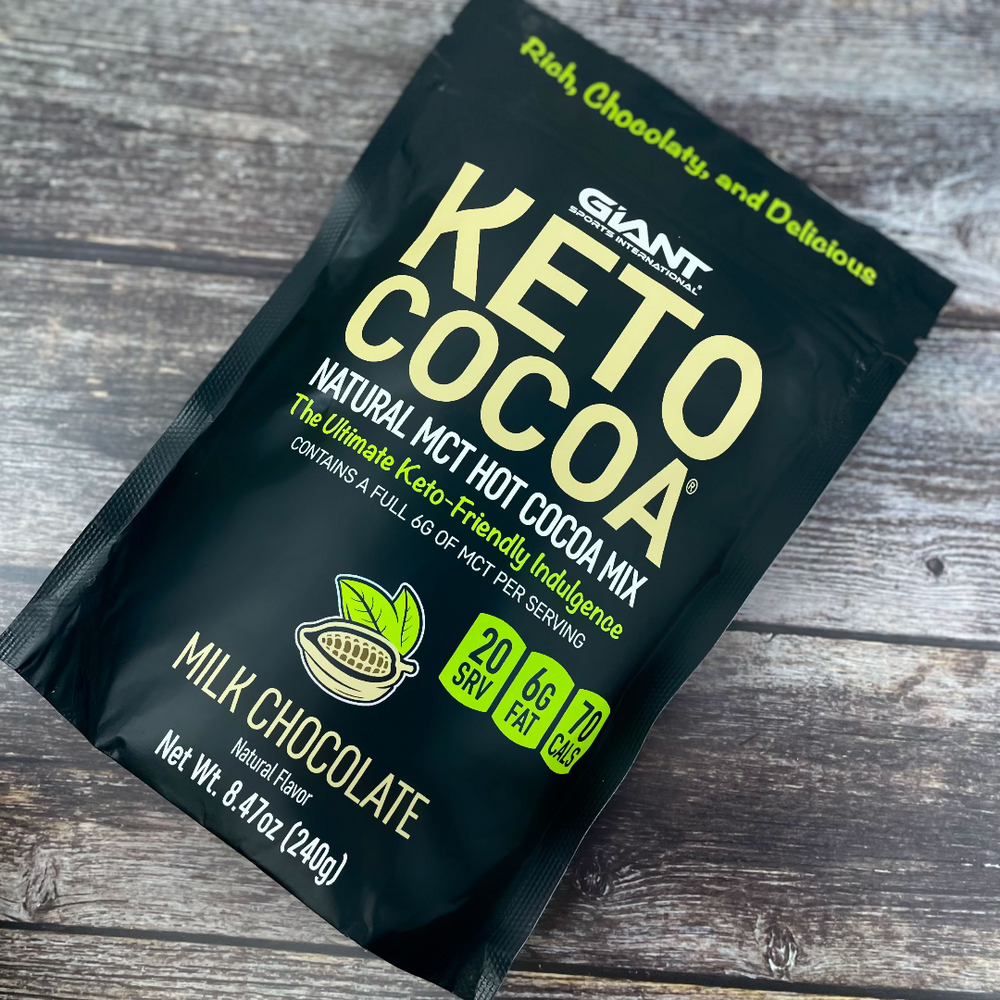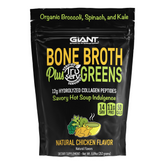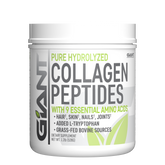The Benefits of Spirulina
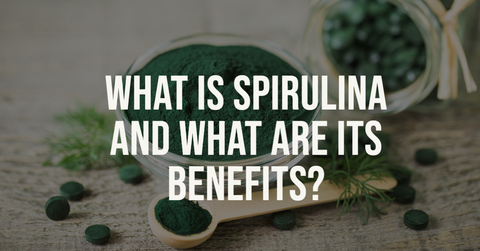
What You’ll Learn...
- What Is Spirulina?
- Benefits
- What Is Blue Spirulina?
- What Are the Dangers of Spirulina?
- How To Consume Spirulina
- How To Store Spirulina
- The Bottom Line
Spirulina is a popular supplement that is full of nutrients and antioxidants. It’s a nontoxic blue-green algae that people often use as a source of protein, and many people who focus on health add this superfood to their diet. Read on to learn all about Spirulina and the benefits it offers.
What Is Spirulina?
Spirulina is a blue-green algae that is nontoxic and easily produced. It is a species of Arthrospira bacteria. It may be one of the oldest forms of life on Earth. When it is dried, it contains 60% to 70% protein, which makes it a plant-based source of complete protein. It contains important amino acids that your body is unable to produce but needs to function.
It also has essential nutrients including iron, calcium, magnesium, and vitamins A, E, and K. It is called a superfood, and people claim that it can boost immunity, reduce fatigue, boost energy, and fight allergies. As such, Spirulina is becoming widely popular as an addition to people’s diet because there are Spirulina health benefits.
Benefits
The main reason that people are using Spirulina is that it is a superfood that has been linked to many health benefits. It contains essential nutrients and minerals, and it is available in both tablets and powders. It is easy to add it to many different recipes. Take a look at what Spirulina is good for:
- Spirulina Is Nutrient Dense
Spirulina grows in saltwater and freshwater, and it is a blue-green algae that is nontoxic and a species of Arthrospira Bacteria, which is a type of cyanobacteria. It is one of the oldest life forms on earth and was used by ancient peoples such as the Aztecs.
People use Spirulina as a supplement because it is high in protein and other vitamins. In fact, one tablespoon of Spirulina contains the following:
- 20 calories
- 4.02 grams of protein
- 0.54 grams of fat
- 1.67 grams of carbohydrates
- 2 mg iron
- 73 mg sodium
- 95 mg potassium
- 14 mg magnesium
- 8 mg calcium
- 8 mg phosphorus
- 0.7 mg vitamin C
- 11% RDA of vitamin B1 (thiamine)
- 15% RDA of vitamin B2 (riboflavin)
- 4% RDA of vitamin B3 (niacin)
- 11% RDA copper
People who take Spirulina as part of a balanced diet can aid in nourishment, and this is one of the most nutrient-dense foods in the world. It has a 60% protein content, which makes it one of the most protein-rich food sources out there, and it contains beta-carotene and an essential fatty acid called gamma-linoleic acid.
- Spirulina Can Help to Lower Cholesterol
Cholesterol is known to be an unhealthy fat that exists in a person’s blood and is linked to heart disease. The bad cholesterol is called LDL, but there is also good cholesterol, HDL. In 2016, a Systematic Review and Meta-Analysis on the impact of Spirulina Supplementation found that including Spirulina can help to reduce bad cholesterol and increase good cholesterol.
LDLs or bad cholesterol can cause a build-up of cholesterol in your arteries, which can cause them to narrow and lead to a heart attack. Taking this supplement can improve the LDL cholesterol and triglyceride levels in your body.
- Spirulina Has Antioxidant and Anti-Inflammatory Benefits
Antioxidants are important because they help protect your cells against oxidative stress. Oxidative stress occurs when there is an imbalance of antioxidants and free radicals, and this can lead to cell and tissue damage. This imbalance can also lead to chronic inflammation, which plays a role in the development of cancer and other diseases.
Spirulina has been found to have antioxidant and anti-inflammatory benefits to human health. It activates cellular antioxidant enzymes, prevents DNA damage, and scavenges free radicals. One of the main ingredients in Spirulina is phycocyanin, and it helps to fight free radicals and block the body from producing inflammatory signaling molecules.
- Spirulina May Help Protect People From Cancer
Scientists have gathered evidence that Spirulina could help limit the size of tumors and the occurrence of cancer by studying its effect on animals. In addition, it may have properties that help the body fight precancerous lesions in the mouth that are called OSMF.
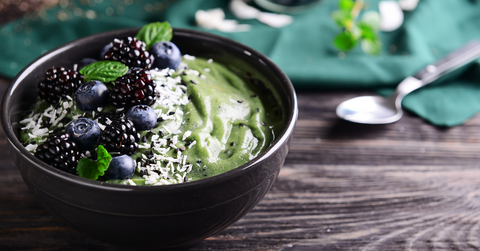
- Spirulina Can Help Control Type 2 Diabetes
A study found that Spirulina may help to lower fasting blood glucose and improve long-term glucose regulation. They found that after two months of using Spirulina as a supplement, it brought about a noticeable reduction of fasting blood glucose levels and postprandial blood glucose levels. In addition, they found that this improved glucose regulation for the long-term.
- Spirulina Can Help You Lose Weight
One of the benefits of Spirulina is that it is high in nutrients and low in calories. When people eat this nutrient-dense food, they are able to feel satisfied longer because their nutritional needs are better met. As a result, Spirulina can aid in weight management. In fact, a study in 2016 found that after three months, overweight people had a significant reduction in BMI, weight, SBP, and SI.
- Spirulina Can Boost Metabolism
Spirulina can boost people’s metabolisms. When people have a higher metabolic rate, they experience more energy because their bodies burn calories more quickly. In a 2014 study, patients with nonalcoholic fatty liver disease experienced a boost in metabolic rate on six grams of Spirulina a day. They need more studies to see the effects on people without this condition, but it appears to have a positive impact.
- Spirulina Can Help to Reduce Blood Pressure
High blood pressure is never good for anyone, and it can lead to heart attacks, strokes, kidney disease, and more. A 2013 study administered one gram of Spirulina every day for three months. They found that the mean levels of triglycerides and cholesterol of different types decreased significantly. They determined that it has powerful hypolipidemic effects on patients. People who take a higher dose of Spirulina may experience a reduction in their blood pressure.
- Spirulina May Reduce Anemia
Anemia can come in many different forms, and Spirulina can help reduce the type of anemia that causes you to have fewer red blood cells in your blood. Anemia can be debilitating and lead to fatigue and weakness, among other things. This study found that Spirulina increased the hemoglobin count in red blood cells and improved the immune system in people over 40 with a history of anemia.
- Spirulina Could Minimize Oxidative Damage to Muscles
When there is an imbalance of free radicals and antioxidants, the muscles and other cells can suffer damage from oxidation. This oxidative damage occurs when the cells and tissue are unable to keep up with free radical production. A study shows that Spirulina may increase the time it takes muscles to become fatigued.
- Spirulina May Reduce Allergy Symptoms
Many people have allergies to pollen, pests, dust, and more. When people suffer from allergies, the inside of the nose can swell, which is called allergic rhinitis. Spirulina can relieve nasal inflammation and reduce the histamine in your body. A study in 2013 found that Spirulina can do this. They found that it reduced the following symptoms:
- Runny nose
- Sneezing
- Itching
- Congestion in nose
- Spirulina Supports Mental Health
Scientists theorize that Spirulina is a source of Tryptophan and can help treat mood disorders. Tryptophan is an amino acid that aids in serotonin production, which benefits mental health. It can help with depression and anxiety. A paper published in July 2018 lays out the potential for Spirulina to help with mood disorders.
What Is Blue Spirulina?
The dark blue pigment in Spirulina is called Phycocyanin. It can be extracted from Spirulina, and it is rich in protein, vitamins, antioxidants, carotenoids, and minerals. You can add it to baked goods, smoothies, pasta, and more. Blue Spirulina does not have the fishy taste that Green Spirulina has. It can aid in weight loss, remove heavy metals and toxins from the body, provide protein, boost energy, and improve digestive health.

What Are the Dangers of Spirulina?
Spirulina is generally considered to be a safe supplement, but there are some Spirulina side effects. For example, one the Spirulina dangers occurs when it is harvested in the wild, as it can be contaminated by toxins. If it is found in an area with pollution, it could have heavy metals, bacteria, or microcystins. Microcystins are produced by Spirulina as a defense against predators, and in large doses, it can be toxic to your liver.
In addition, Spirulina is known to boost the immune system, but it could worsen some autoimmune diseases, including lupus or rheumatoid arthritis. It can also slow blood clotting because it can thin your blood. Finally, some people have shown allergies to Spirulina, with reactions ranging from mild to fatal.
How to Consume Spirulina
You can find Spirulina in both powder and tablet forms. When it is in tablet form, you can take it as a daily supplement. These tablets can be found in health food stores, drug stores, and online. The powdered form of Spirulina has different uses, including the following:
- You can sprinkle it on your salad or in your soup
- You can add it to a Smoothie
- You can add it to fruit or vegetable juice
- You can add it to other foods
The powdered form is dried and can be purchased at health food stores or online. You should look at the supplement facts label when you buy Spirulina because it contains the information about the active ingredients per serving as well as other ingredients that may be added. In addition, you want to make sure that the supplement you buy has been endorsed by a third-party organization that provides testing that is high quality.
Usually the Spirulina that you purchase is farmed by a manufacturer that grows it in contained pools. They take the algae, and they pump it into a harvesting facility. There, it is strained with screens made of stainless steel. Next, it is laid out and washed three times with drinking water, and then it goes to a drying vessel that transforms it to its powder form.
It is important to remember that the environment where it grows can have an impact on its taste and nutritional content, so it is a good idea to research the brand. Much of it comes out of China or India, but it often has a lower nutritional profile, and it could have heavier metal content or bacteria contamination. You should research where the Spirulina is made before you buy it.
How to Store Spirulina
Once you open the container or bottle, you can store the Spirulina in the refrigerator. It does not contain oils that cause it to go bad, but it has nutrients that are sensitive to oxygen that can lose their nutritional value over time. You should use it within a few months of opening it.
The Bottom Line
Spirulina is a powerful superfood that can have many different benefits to your health. This blue-green algae is nontoxic, and it is one of the oldest life forms on earth. It is said that people as ancient as the Aztecs ate Spirulina.
People take Spirulina as a dietary supplement, and it is full of nutrients and has many potential health benefits. It is a complete protein, which means that it has important amino acids that your body needs to get from an outside source. It can help by providing antioxidants and fighting inflammation. It potentially helps to regulate your blood sugar, and it may help lose weight.
There are a number of different benefits that you get from this popular supplement, and it is easy to add it to your diet. It is one of the most nutrient-dense foods in the world, including a 60% protein content. When it is used at the recommended dose, there are few side effects. However, you should pay attention to where it is made because supplements are not regulated by the FDA, so you will need to do your research to make sure that the company engages in safe practices.
